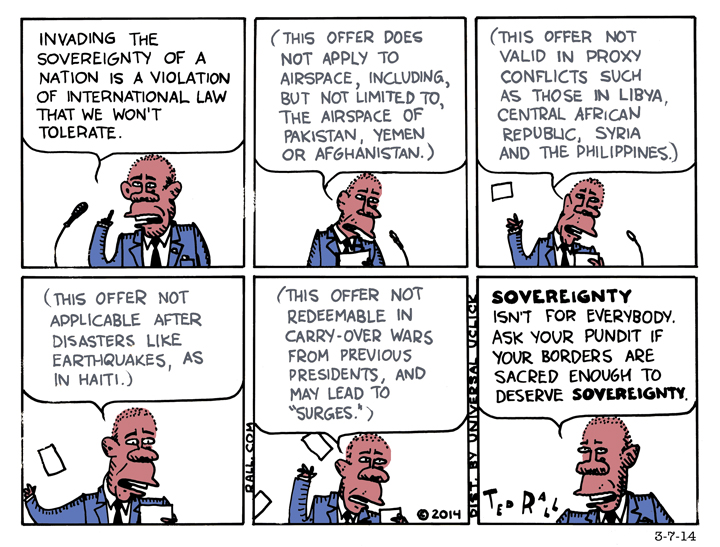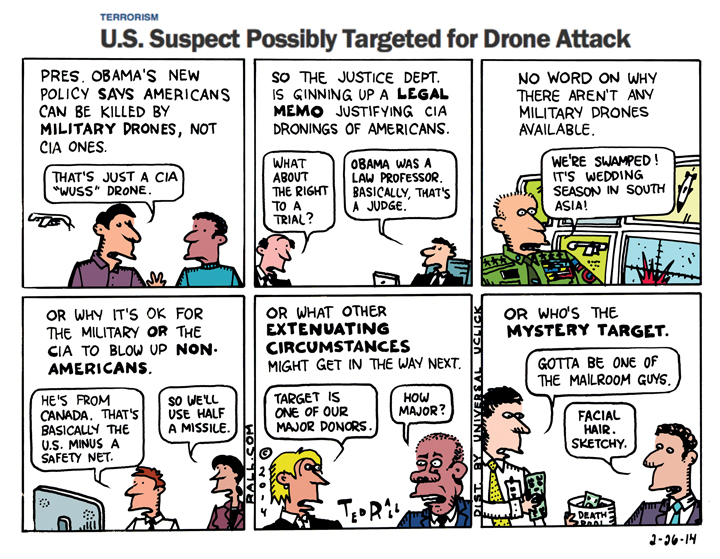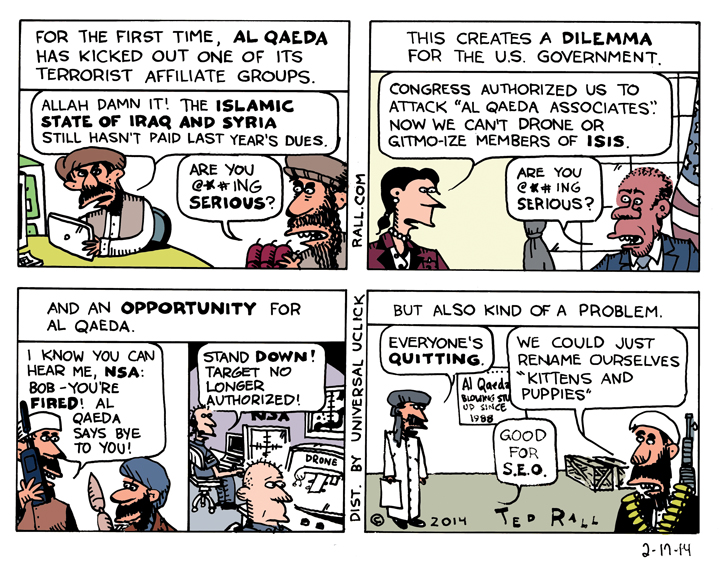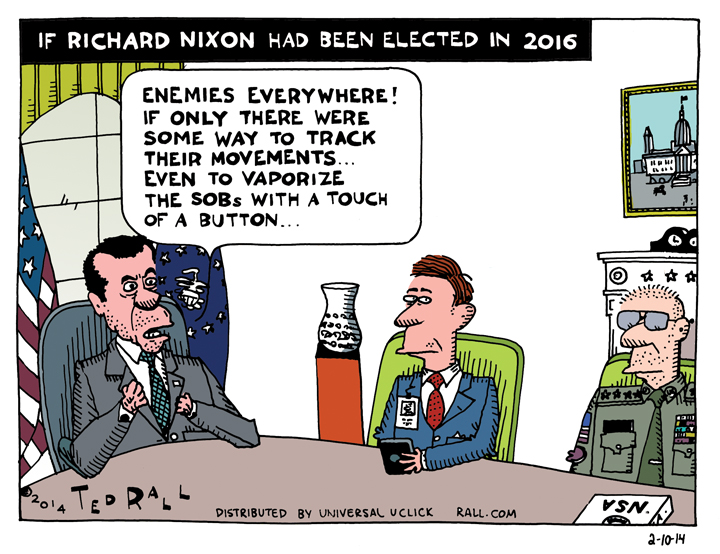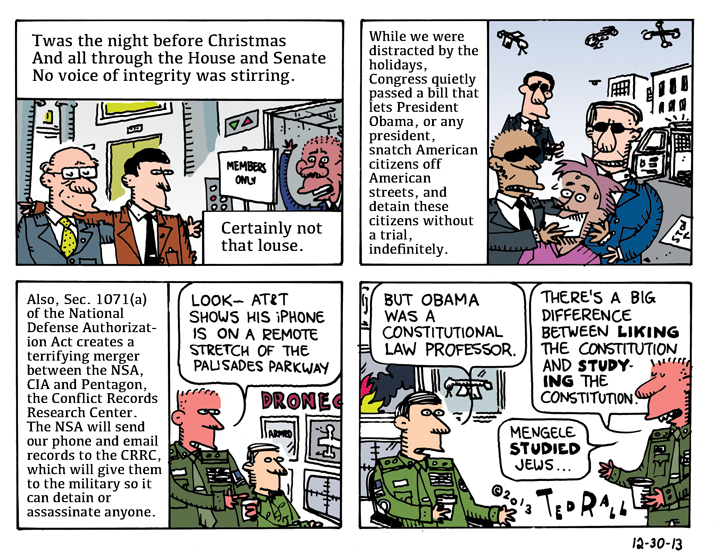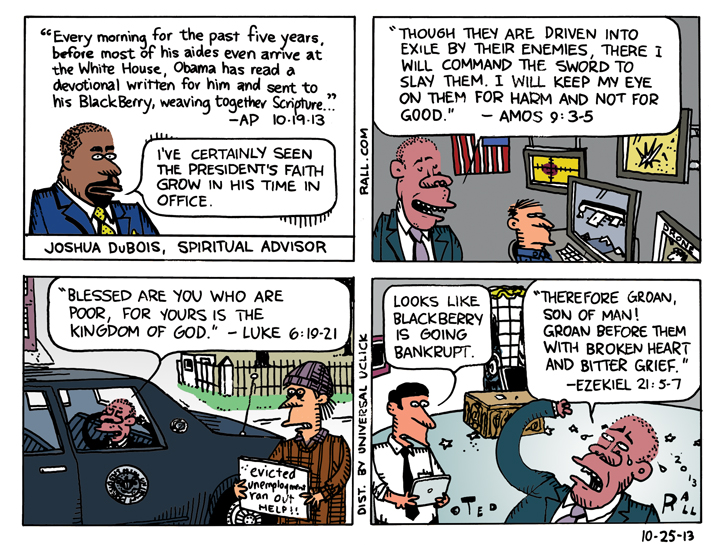
The Drone Memo’s Hack Author Should Be In Prison. Instead, He’ll Be a Judge.
Conservatives say, and this is one of their more successful memes, that poor people are immoral. The proles have sex and kids out of wedlock and expect us (i.e., upstanding middle- and upper-class patriots) to pay for them. They steal Medicare and cheat on welfare. They don’t follow The Rules (rules written by, let’s just say, not them). Which makes them Bad.
This was always hogwash, of course. Though it is true that poverty causes people to do bad things, class and morals are uncorrelated. But who’s worse, the poor thief or the wealthy person who refuses to pay him a living wage?
America’s professional class has traditionally enjoyed a privileged position at the top of middlebrow America’s aspirational hierarchy. At the core of our admiration for doctors, lawyers and bankers was the presumption that these learned men and women adhered to strict codes of ethics. Doctors healed, lawyers respected the law and bankers didn’t steal.
When they did, there’d be hell to pay, not least from their brethren.
Evidence abounded that the clay content in the professional class’ metaphorical feet was no lower than anybody else’s. Thanks to recent developments, not least since 2008’s save-the-banks-not-the-people orgy of featherbedding at taxpayer expense, the fiction that we should look up to the technocracy is dying fast.
Not only are some physicians crapping on their Hippocratic oath by carrying out executions of prisoners and participating in the horrific torture of innocent concentration camp inmates, the associations charged with enforcing professional ethics sit on their old-boys-club hands. Big-time judges, depicted in movies as moral giants who love to get medieval on evil dirtbags whether in the mafia or the CIA, act like wimps instead, grumbling under their mint-flossed breath as they sign off on the federally-funded insertion of needles into innocent men’s penises.
Thurgood wept.
I got to thinking about the fall of the professional class after hearing that the White House has finally relented in its incessant stonewalling on the Drone Memo. Finally, we peons will get a peek at a legal opinion that the White House uses to justify using drones to blow up anyone, anywhere, including American citizens on American soil, for any reason the President deems fit.
When the news broke, I tweeted: “This should be interesting.”
I’m a cartoonist, but I can’t imagine any reading of the Constitution — left, right, in Swahili — that allows the president to circumvent due process and habeas corpus. I can’t see how Obama can get around Ronald Reagan’s Executive Order 12333, even after Bush amended it. Political assassinations are clearly proscribed: “No person employed by or acting on behalf of the United States Government shall engage in, or conspire to engage in, assassination.” (Yes, even bin Laden.)
I have no doubt that David Barron, who is a professor at the very fancy Harvard Law School and held the impressive title of Former Acting Chief of the Justice Department’s Office of Legal Counsel, and who furthermore is President Obama’s nominee to fill a vacancy on the United States Court of Appeals for the First Circuit in Boston, did his very bestest with his mad legal skillz to come up with a “kill ’em all, let Obama sort ’em out” memo he could be proud of.
Still, this topic prompts two questions:
What kind of human being would accept such an assignment? Did anyone check for a belly button?
How badly would such a person have to mangle the English language, logic, Constitutional law and legal precedent, in order to extract the justification for mass murder he was asked to produce?
I haven’t seen the drone memo, but Senator Rand Paul has. Whatever legal hocus-pocus Barron deployed didn’t convince Paul. “There is no legal precedent for killing American citizens not directly involved in combat and any nominee who rubber stamps and grants such power to a president is not worthy of being placed one step away from the Supreme Court,” Paul said in a statement.
I’ll bet my next couple of paychecks that Paul is correct — and that Barron’s sophistry wouldn’t withstand a serious court challenge, not even before a panel of a dozen Antonin Scalias. After all, we’ve been here before.
Shortly after 9/11, Dick Cheney and his cadre of neo-con fanatics ordered the White House Office of Legal Counsel, the same entity behind Barron’s drone memo, to come up with a legal justification to give Bush legal cover for torturing suspected terrorists. When they emerged, the Torture Memos were roundly derided by legal experts as substandard, twisted and perverse readings of the Constitution, treaty obligations and case law. Read them. You’ll see.
In 2010, the Justice Department decided not to file charges against Torture Memo authors John Yoo and Jay Bybee on the grounds that the two men weren’t evil — just dumb. (Can’t they be both?) The Torture Memos, they ruled, were shoddy. That, I’m as sure as I can be about something I haven’t seen yet, will be the case with the drone memo.
As with Yoo and Bybee, both of whom went on to prosper in the legal profession rather than warm the prison cells they both richly deserve, Barron probably won’t lose anything as the result of his work on the drone memo. He’ll be a federal judge.
Yet another heavy stone on the grave of America’s once-vaunted professional class.
(Ted Rall, staff cartoonist and writer for Pando Daily, is author of “Silk Road to Ruin: Why Central Asia is the New Middle East.” Support independent journalism and political commentary. Subscribe to Ted Rall at Beacon.)
COPYRIGHT 2014 TED RALL, DISTRIBUTED BY CREATORS.COM

